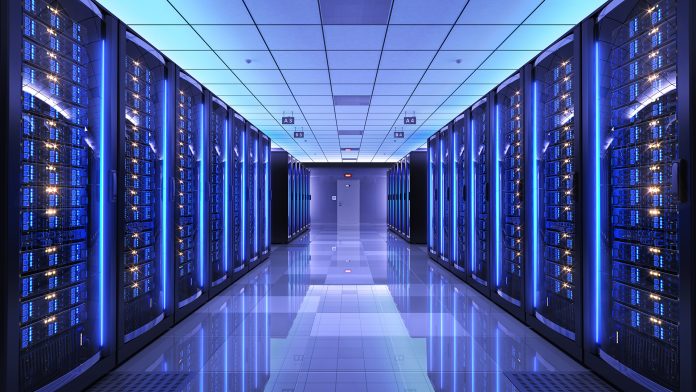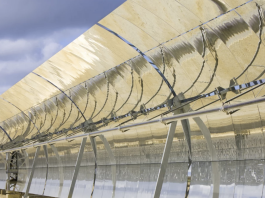Dr David Pugh, Director for Sustainable Industry at Digital Catapult, discusses the relationship between data centres and thermal energy, and how it can be leveraged to achieve net zero goals.
Industries around the world are seeking innovative solutions to mitigate their environmental impact.
One groundbreaking advancement lies in the symbiotic relationship between data centres and thermal energy.
Traditionally recognised for their energy-intensive operations, data centres are now expected to revolutionise the renewable energy landscape, serving as hubs for sustainable energy production.
At Digital Catapult, our focus lies in the intersection of renewable energy and advanced digital technologies, and with an increasing number of businesses committing to achieving net zero emissions by 2050, sustainable innovation has become paramount to business success.
As such, there is a growing awareness among businesses around the potential to leverage heat from data centres to meet their environmental objectives.
As businesses across multiple sectors seek ways to integrate AI-driven solutions for sustainable practices, it has become increasingly evident that using thermal energy from data centres could be the key to offsetting environmental consequences.
Such a process will be critical to a business’s long-term commercial success and should be a priority for any business on the path to net zero.
The energy intensity of the data centre
Data centres house significant amounts of information and facilitate the seamless functioning of the digital world. This convenience comes at a cost, as data centres are notorious for their high energy consumption.
The UK Energy Research Centre (UKERC), for example, estimates that data centres’ energy use accounts for around 1% of the world’s total energy consumption, underscoring the substantial impact data centres have on global energy demand.
Data centres aren’t just impacting the environment, but the economy too. The UKERC also found that the cost of operating data centres in the UK amounts to billions of pounds annually, with estimates ranging from £4bn to £7bn per year.
The combined economic and environmental impact of data centres makes clear the need to evolve their use for commercial and environmental gains.
Leveraging symbiosis to generate thermal energy is one way to achieve this. Taking advantage of this renewable energy will be critical to achieving long-term success and sustainable business growth.

Thermal energy for sustainability and efficiency gains
Data centres generate substantial amounts of heat through their operations, necessitating robust cooling systems to maintain optimal temperatures. This excess heat is traditionally expelled into the atmosphere, exacerbating environmental issues, but recent innovations have unlocked the potential to capture and repurpose this thermal energy for sustainability and efficiency gains.
By integrating heat capture technologies such as heat pumps, heat exchangers, and thermal storage systems, data centres can effectively harness the surplus heat generated during operations.
Rather than dissipating into the environment, this heat can be used for various applications, including space heating, water heating, and even power generation through district heating networks.
Research has found that thermal energy storage tanks have a lifetime of 20-30 years, much longer than the four to ten-year life of batteries. This results in lower maintenance costs over the lifetime of the data centre, too.
In my role as Director for Sustainable Industry at Digital Catapult, I work with businesses to explore how the symbiotic relationship between data centres and thermal energy could be used for improved operational efficiency and to achieve sustainability goals. This includes considering how thermal energy from data centres could be used to heat swimming pools and local infrastructure, and be integrated into district heating systems, maximising its use and reducing waste.
Through collaborative research and development initiatives, we can assess how to unlock the full potential of this symbiotic relationship, driving innovation in the field of energy management, and contributing to a more sustainable future.
Harnessing the benefits of thermal energy through innovation
Digital Catapult is immersed in exploring the symbiotic relationship between data centres and thermal energy by leveraging AI to enhance operational efficiency and advance sustainability goals.
Our work, with a range of partners, to pioneer the convergence of AI and other emerging technologies, such as with our Eco-metre solution, demonstrates our deep commitment to supporting organisations of all sizes in optimising their energy usage and reducing their carbon footprint.
One innovative application involves using AI algorithms to analyse vast datasets on energy consumption patterns within data centres. Identifying inefficiencies and optimisation opportunities allows businesses to maximise energy efficiency and minimise waste.
Through this symbiotic relationship, we’re not only achieving significant energy savings but also reducing carbon emissions, aligning with our commitment to sustainability and environmental stewardship.
Moreover, through programmes like the Digital Supply Chain Hub and the Logistics Living Lab, we are also actively harnessing Artificial Intelligence’s potential to reduce emissions across various sectors by leveraging AI’s predictive capabilities and optimal control strategies. This enables businesses to make data-driven decisions that lead to substantial energy savings and enhanced sustainability.
The symbiotic relationship between data centres and thermal energy stands as an important mechanism in the quest for sustainable innovation. As industries worldwide confront the urgent need to reduce their environmental footprint, harnessing the surplus heat generated by data centres is a promising solution.
Through technological advancements and a commitment to leveraging data-driven insights, businesses can not only enhance operational efficiency but also contribute to the global effort to combat climate change. This will be key to any business on the path to net zero, and any business interested in learning more about how they can leverage thermal energy from their data centres can learn more here.









